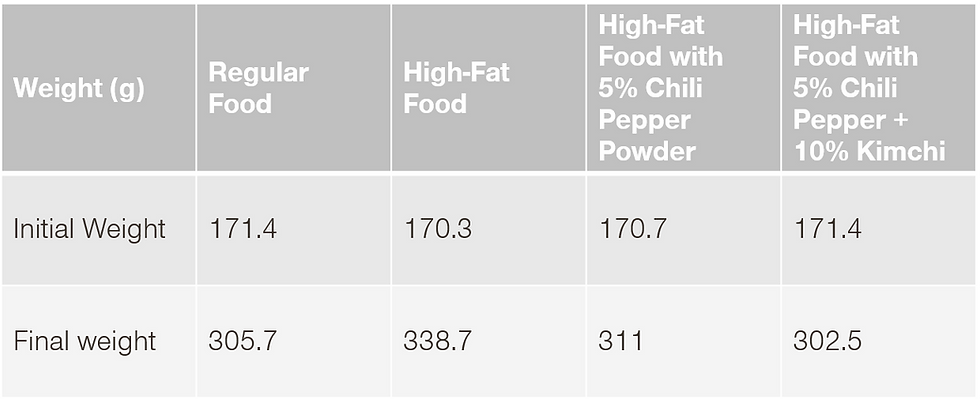Caution: Eating Kimchi Can Seriously Benefit Your Health (Part 1 of 4)
- Admin
- Feb 12, 2018
- 2 min read
We've seen in the previous articles how Kimchi has a very specific preparation process, and that this makes the chemistry of kimchi fairly unique among fermented foods.
But so what?
As we've alluded to before, there is a Korean saying that 'Food is medicine'.
If we look at the health benefits of kimchi as measured in lab tests, it is no exaggeration to apply this proverb quite literally to kimchi.
There are so many of these lab results, in fact, that we've had to split them out over four articles.
Let's start with anti-obesity effects.
An article in a 2006 edition of Health Magazine called out the five healthiest foods in the world, with kimchi listed among them.
Describing kimchi as 'loaded with key vitamins' and containing 'healthy bacteria that aid digestion', it also referred to it as 'part of a high-fiber, low-fat diet that has kept obesity at bay in Korea'.
The statistics bear this out.
Korea has one of the lowest obesity rates in the advanced world, battling it out with Japan in the below-6% category.
Meanwhile the next best contestant is Italy at 9.8%. At the bottom of the scale is the USA, with 38.2% of adults classified as obese.
In the case of Korea, then, how is it that a country of people so preoccupied with food, who greet each other by asking 'Have you eaten?' are hitting the ball out of this particular park?
And how does kimchi prevent obesity, exactly? Isn't eating food part of the problem?
Science time again...
Professor Park of Busan University hypothesized that the anti-obesity effects of kimchi could be traced to a compound called capsaicin in the chili pepper, which is a major ingredient in kimchi.
Professor Park also believed that when other ingredients are added, such as garlic, ginger, and radish, and fermentation takes place, the effects are increased.
In one of the professor's experiments, a group of mice went on a high-fat diet for four weeks. Here were the final weights of the mice, compared to the control group, who were given regular food.

Extraordinarily, the mice fed with combination of Kimchi and high-fat food ended up weighing slightly *less* than the group on regular feed.

Traditional Korean food is healthy, but many habits of Koreans in the past century - such as drinking and smoking - are not.
The fact that in spite of this, Koreans have managed to maintain world-beating health statistics, is truly a testament to the power of kimchi, which has a place on every table at every meal.
So be sure to get your daily dose of capsaicin, and stay tuned for the next article!








Comments